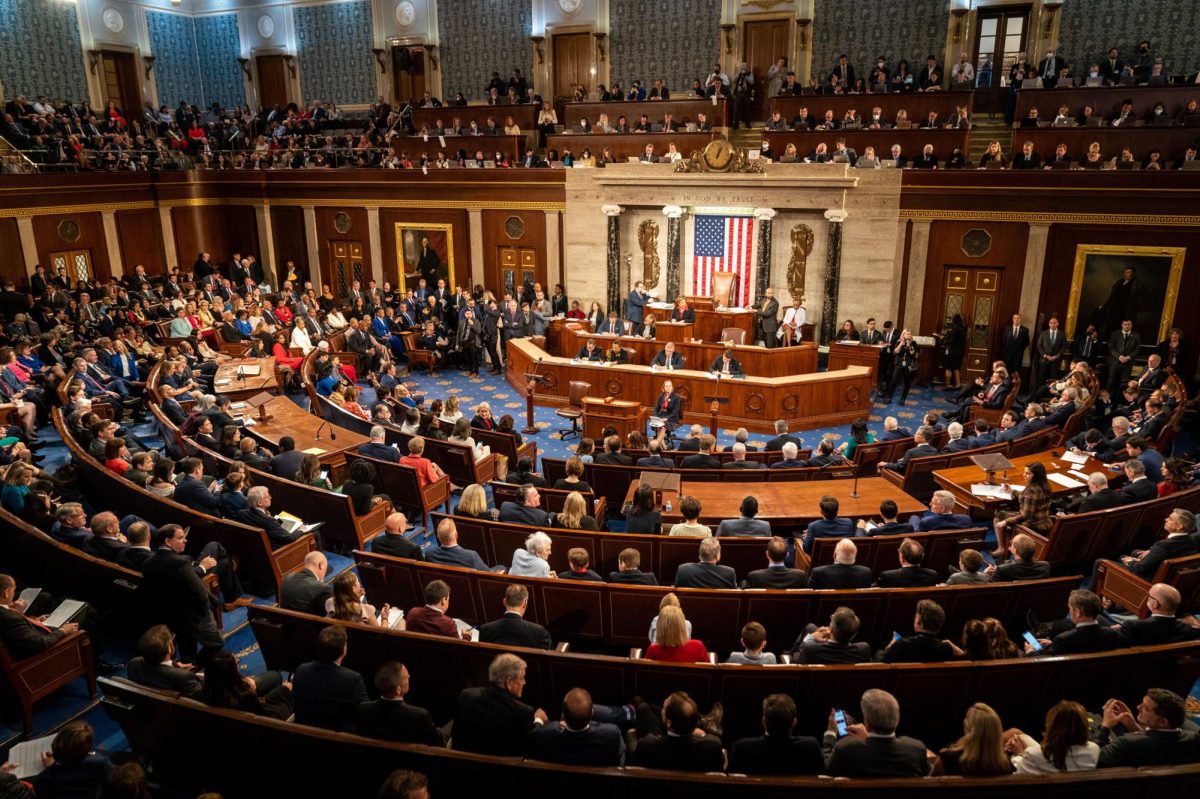Before there were democracies and republics and other forms of organized government there was the family. Family was the first form of governance. However, many in this country feel like the institution of the family is under attack. In recent years, we have seen many controversial statements about the family.
In 2020, the Black Lives Matter organization had a statement on their website saying, “We disrupt the Western-prescribed nuclear family structure requirement by supporting each other as extended families and ‘villages’ that collectively care for one another, especially our children, to the degree that mothers, parents, and children are comfortable.” They later removed it after backlash. There were contentious debates over what was actually meant by the phrase, but it still exemplifies how something as universal as the family has become the center of heated debate.
Another example is President Biden saying during a speech to teachers, “There’s no such thing as someone else’s child. No such thing as someone else’s child. Our nation’s children are all our children,” according to the official White House transcript.
Presidential candidate Vivek Ramaswamy said during his closing statement at the first GOP debate of 2023 on Aug. 23, “The nuclear family is the greatest form of governance known to man.” The principle of the family having rights and privileges that the federal government does not have is not new. One important aspect of that is parental rights. The idea of parental rights has come into focus in several controversial arenas, especially education.
Parental rights are not mentioned specifically by name in the Constitution. However, they are still regarded as a fundamental part of our society, as the Supreme Court has iterated repeatedly, including cases such as Meyer v. Nebraska (1923), Pierce v. Society of Sisters (1925) and Wisconsin v. Yoder (1972).
What are parental rights? Parental rights are regarded as the right of parents to direct the upbringing and education of their child. The application and extent of those rights is often what drives controversy.
Since parents have a right to direct the education of children, how much influence should they have on what their child is taught and exposed to in schools? Earlier this year in March, the House of Representatives passed the Parents Bill of Rights. It was passed through the House almost completely along partisan lines, with all Democrats voting against it and most Republicans voting for it. It did not pass through the Senate, so it did not become law. However, it provides an example of the debate around parental rights.
The text of the bill is mostly centered around disclosure to parents and transparency in education. It would have required that schools disclose all curriculum and books for parents to read, allowed parents the right to address the school board, blocked the selling of students’ information with some exceptions, required schools to notify parents of violent activity and required schools to get parental consent for a minor child under eighth grade to change their gender, name or pronouns.
The Republicans who objected to the bill argue that it would increase the power of federal government in education. Some Democrats supported some parts of the bill, such as schools being required to notify parents of violence, but opposed other parts. They argued that some parts of this bill are already in place, and that it just makes it easier to ban books. They also were against the provision of forcing schools to notify parents of their children’s gender changes, suggesting that “outing” them to parents who didn’t support that decision could cause harm to the child.
This is one example of the culture war we are seeing with the family at the center. However, if the traditions and precedents of this country point to the right of parents to direct the education and upbringing of their children, then more transparency in education would certainly seem to fit that criterion. It would make sense that a parent should have some guidance in the type of material their child can access at a school, especially sexually explicit material. There are already laws in place that allow a parent to opt children out of sex education. So why wouldn’t that same principle apply to books they can read?
The issue revolves around whether one group of parents should be able to essentially set the rules for other people’s children. One way to balance that out would be to require parental consent to access certain material or set age restrictions. But even these ideas have been heavily contested and lumped in with “book banning.”
Another large controversy references whether schools should be allowed to hide children changing their gender identity. The argument against this suggests this would be bad because of potentially abusive or disapproving parents. However, doesn’t it make more sense that the most important people in a child’s life should be involved in such a momentous decision? Hiding this from parents is a mistake, because children, especially young children, are not in a place to make such lasting decisions alone. A parent’s responsibility is to look out for their child’s needs first and foremost, and leaving them out of their child’s life in personal decisions such as these is a mistake.
There are so many different aspects of the family that I could focus on, such as the importance of fathers in children’s lives, the role of homeschooling versus public or private schools and more. I do want to emphasize that this article is not saying any families are perfect. No parents are perfect. There are bad parents and situations that blur the lines. However, I would contend that the majority of parents are doing the best they know how to raise their families and take care of their children. Circumventing those roles and responsibilities can lead to dangerous consequences.
No, Mr. President. Their children do not belong to all of us. All people, including children, have God-given rights and liberties, but parents have the right and responsibility of safeguarding and nurturing their children.









